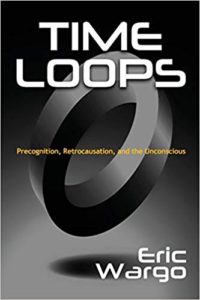SETI, UFOs, and the Scientific Sublime
 Even the most rationalistic and empirically minded people are fundamentally governed by nonrational principles such as aesthetics. Like the rest of us–though they may not acknowledge it–even “hard scientists” are guided in their inquiries and in their interpretations by what feels most elegant and beautiful and right.
Even the most rationalistic and empirically minded people are fundamentally governed by nonrational principles such as aesthetics. Like the rest of us–though they may not acknowledge it–even “hard scientists” are guided in their inquiries and in their interpretations by what feels most elegant and beautiful and right.
It is hard not to appreciate the elegance and beauty of the standard SETI picture of extraterrestrial civilizations: They are distant, ancient, and serene. “Contact” will take the form of radio signals sent years or centuries or millennia ago “across the sea of space.” It is a picture I like to call the “scientific sublime,” and Carl Sagan was its great prophet for a generation of young would-be scientists. Every Sunday morning we were glued to PBS, watching Sagan sail his “ship of the imagination” to the stars and explore the “intricate machinery of life,” and we felt inspired by this vast cosmic vision and the weirdly inspiring sense of the insignificance of ourselves and humanity.
Freud wrote of the “oceanic feeling” that stimulated religion. Sagan was a kind of prophet of science-as-religion; you could get that oceanic feeling from thinking about space and time and the incredible complexity of nature. (The recent “Symphony of Science” remixes of Cosmos and other classic science programs are nice reminders of this.)
In other words, the cosmos was, in Sagan’s picture, like God—a God we could actually believe in and celebrate because he was essentially indifferent to our tiny affairs. Throughout his career, Sagan was highly dismissive of UFOs, even though he acknowledged that it was statistically probable the earth would be visited by extraterrestrial explorers every 20,000 years or so.
I suspect this cherished sense of man’s insignificance in the cosmos is at the root of many scientists’ dismissal of UFOs: It simply violates their sense of aesthetics. It seems like a B-movie version of a state of affairs (“we are not alone”) that ought to be far stranger, far more awe-inspiring and serene. And it feels distressingly (and dangerously) human-centric, flying in the face of the wise and ethically inspiring cosmic vision Sagan and other proponents of SETI preached—the earth as a vulnerable tiny blue speck in the vast cosmos.
Other intelligences, in this view, should be far, far away, not buzzing around our planet like gnats. Alien minds should be contemplating the incredible intricacy of nature, the mysteries of existence, amid inconceivable monuments of glass and stone, not furtively spying on our army bases, molesting our livestock, and abducting suburbanites. An ET presence among us feels cheap and tawdry, deflating that sublime sense of distance and scale.
The “UFO movement” (to slap a label on something that is highly diverse and varied, I realize) tends to contain a lot of highly human-centric assumptions. Almost any interpretation of the phenomenon assumes that humans figure in the plans of higher beings, or that they want something from us, or that they are intensely interested in us. If abductees are to be believed, aliens want to do things with, or take things from, our bodies, or they want to breed with us; perhaps they “need” our genetic diversity, or want to control us by creating some kind of alien-human hybrid. More optimistically, they are preparing to contact us and share their knowledge with us. Or they are here to protect us from destroying ourselves. Or they want to elevate us, facilitate our evolution to a higher, “posthuman” state, like the slabs in 2001.
In short, UFOs encourage us to think of ourselves and our planet as special—which, unfortunately, is a dangerous and retrograde perception—a throwback to the Middle Ages.
Is it possible to accept the UFO phenomenon and also somehow preserve the sublimity that Sagan preached? Some ufologists potentially do so by departing from the ET hypothesis. Mac Tonnies, for instance, thought UFOs could be “cryptoterrestrial” rather than extraterrestrial. Yet, he also liked the alternative view that they represented an ancient machine intelligence, and also blogged intelligently (and wrote a book) about the possibility of ancient ruins on Mars—more sublime visions. Jacques Vallee likewise believes UFOs may be far stranger than anything we can imagine–psychological or interdimensional entities–but that they don’t represent beings from outer space.
There may be no single answer to the UFO question. It’s quite possible or even probable that we’re not even talking about a single phenomenon. But I do think that much if not all of what we are dealing with represents beings that are more or less indifferent to our affairs or our existence. This indifference, to me, preserves at least some of the sublimity of whatever vast and ancient intelligences UFOs might represent.




I thought your article was really interesting. About how Sagan, and science in general–its myth, if you will–has given the propaganda/image that we and planet earth are insignificant. I have heard this time and and time again when conversing with people who frequent science-based forums online and will quote Carl Sagan as though he was a prophet.
And it is also interesting how you show that some ‘hip’ UFOlogists will preserve this ‘distant purity’ by claiming that the ‘UFOs’ are all connected with the fairies–and thus like nature spirits.
But I feel you let it down at the end when you seem to repeat what they are saying claiming you don’t think ANY of the ‘beings’ really care for us–are “indifferent”. So now YOU are paining the phenomenon with the same brush, and pushing the insignificant theme.
I don’t feel this. I sense indifference from the dead souless ones that not only create wars and more wars for profit, and promote insane consumerism via propaganda in a planet they consider dead –like themselves, and the millions of asleep people who either are blind or choose not to look what’s going on. But that these beings are VERY aware of what we are doing to planet earth and are trying to help us in a way that is not patronizing.